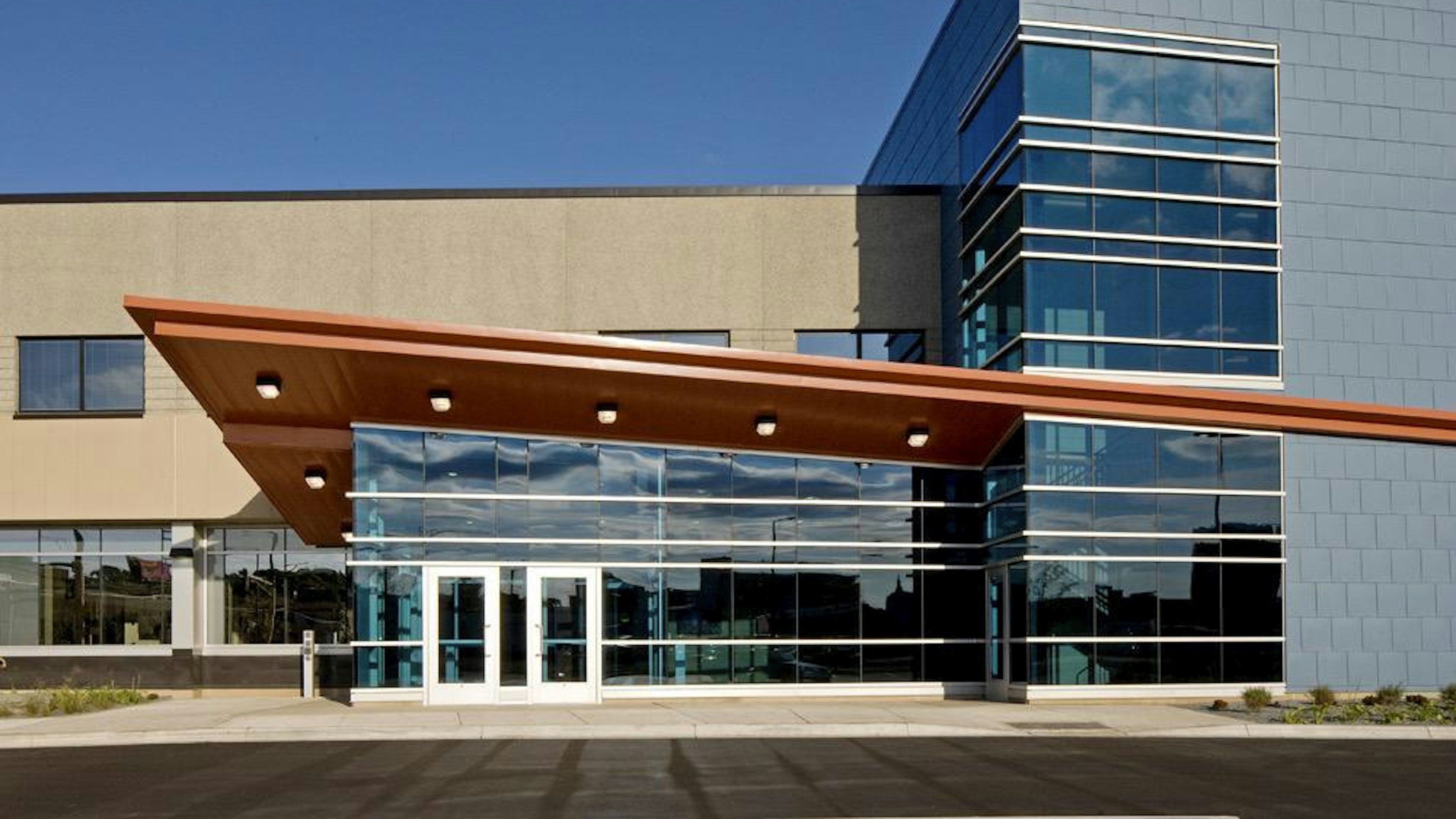
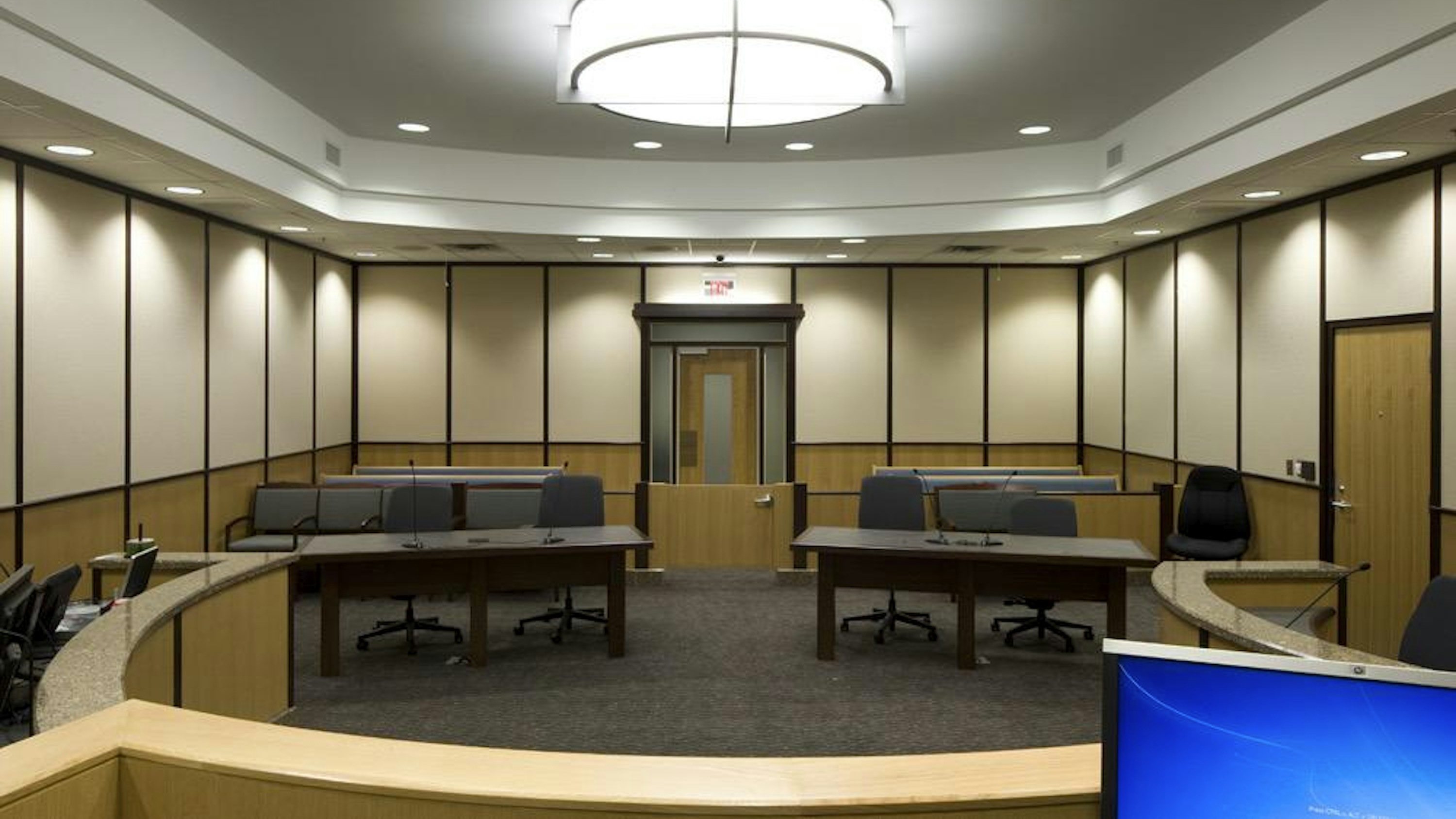
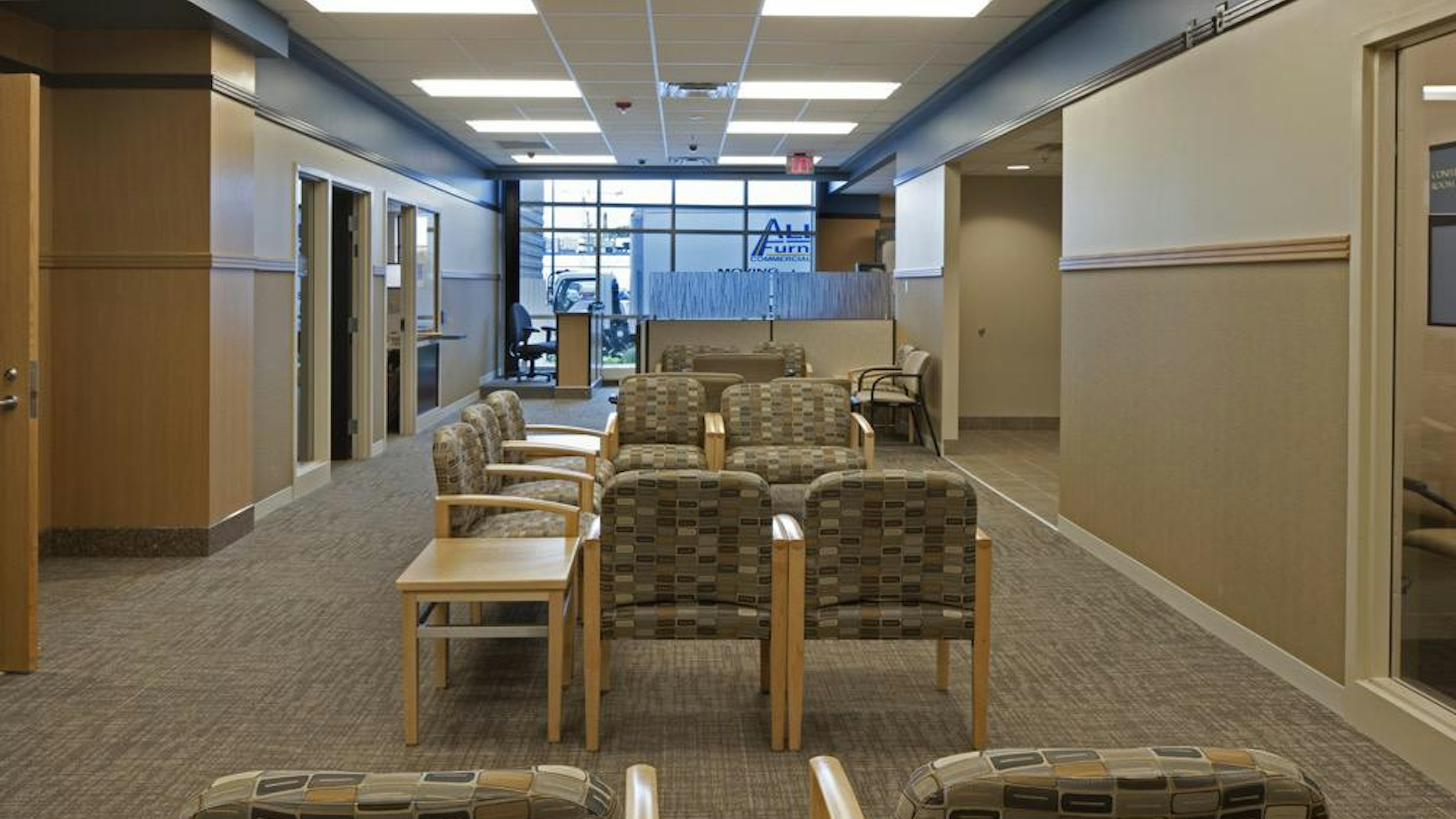
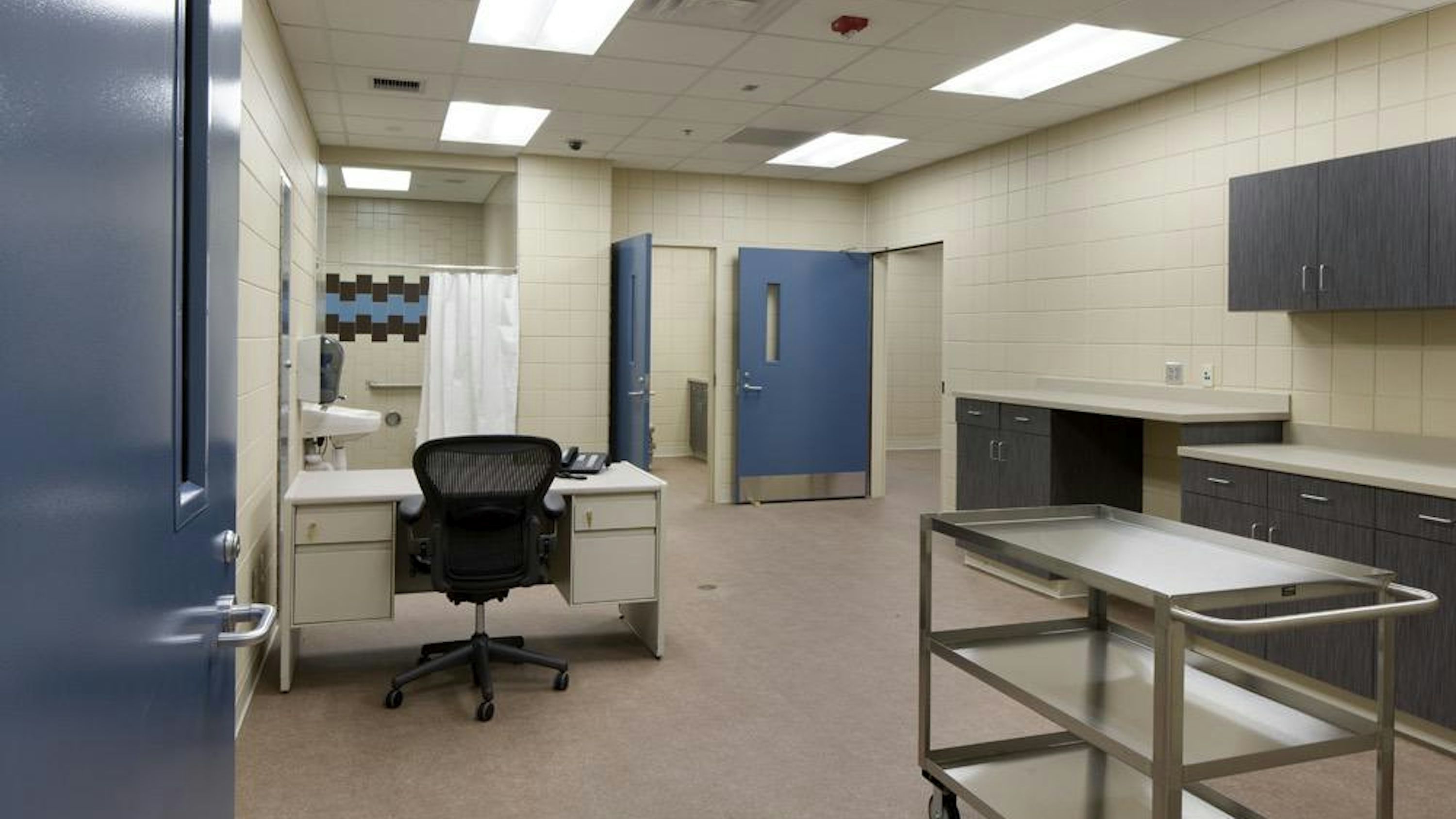
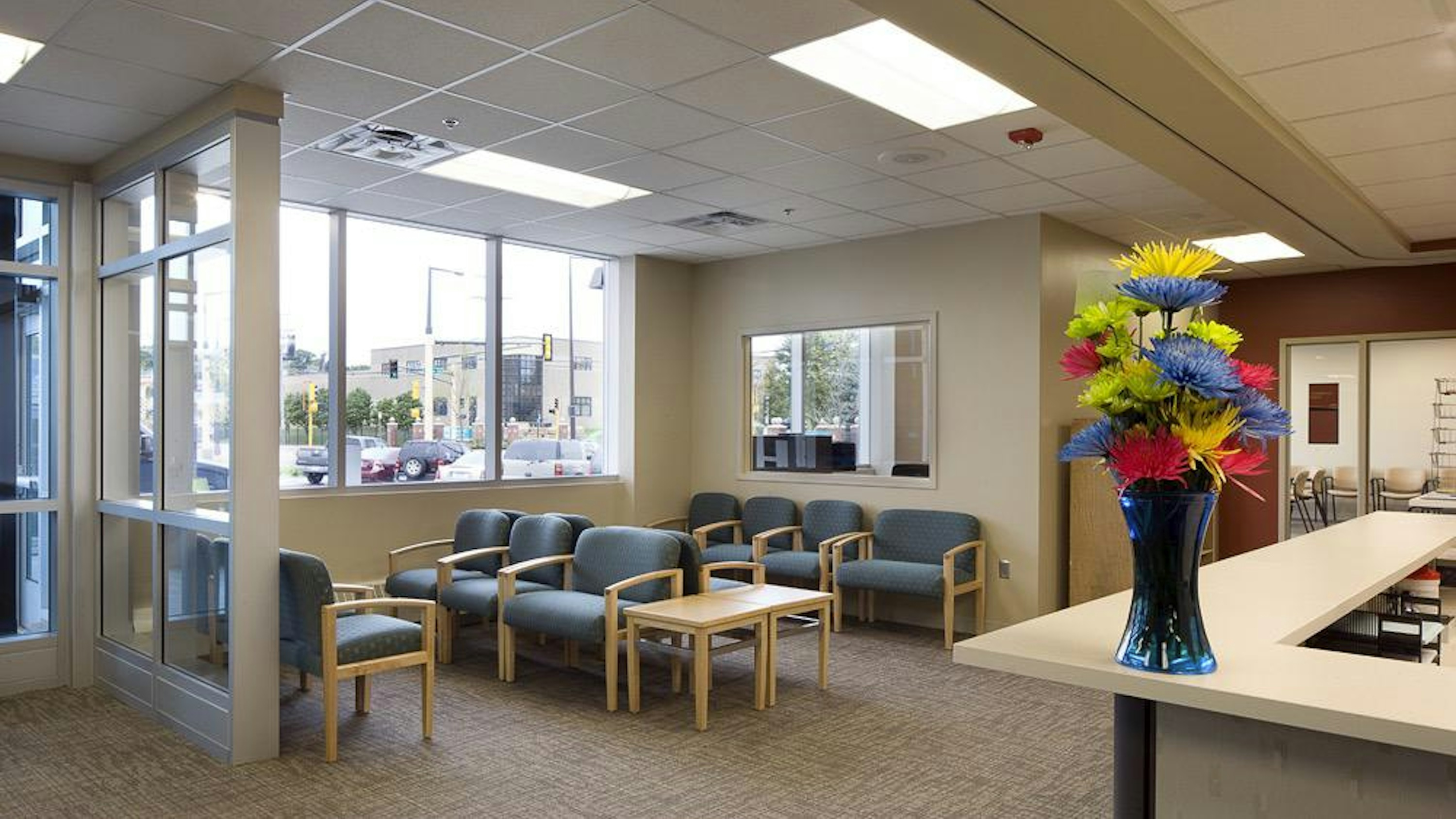
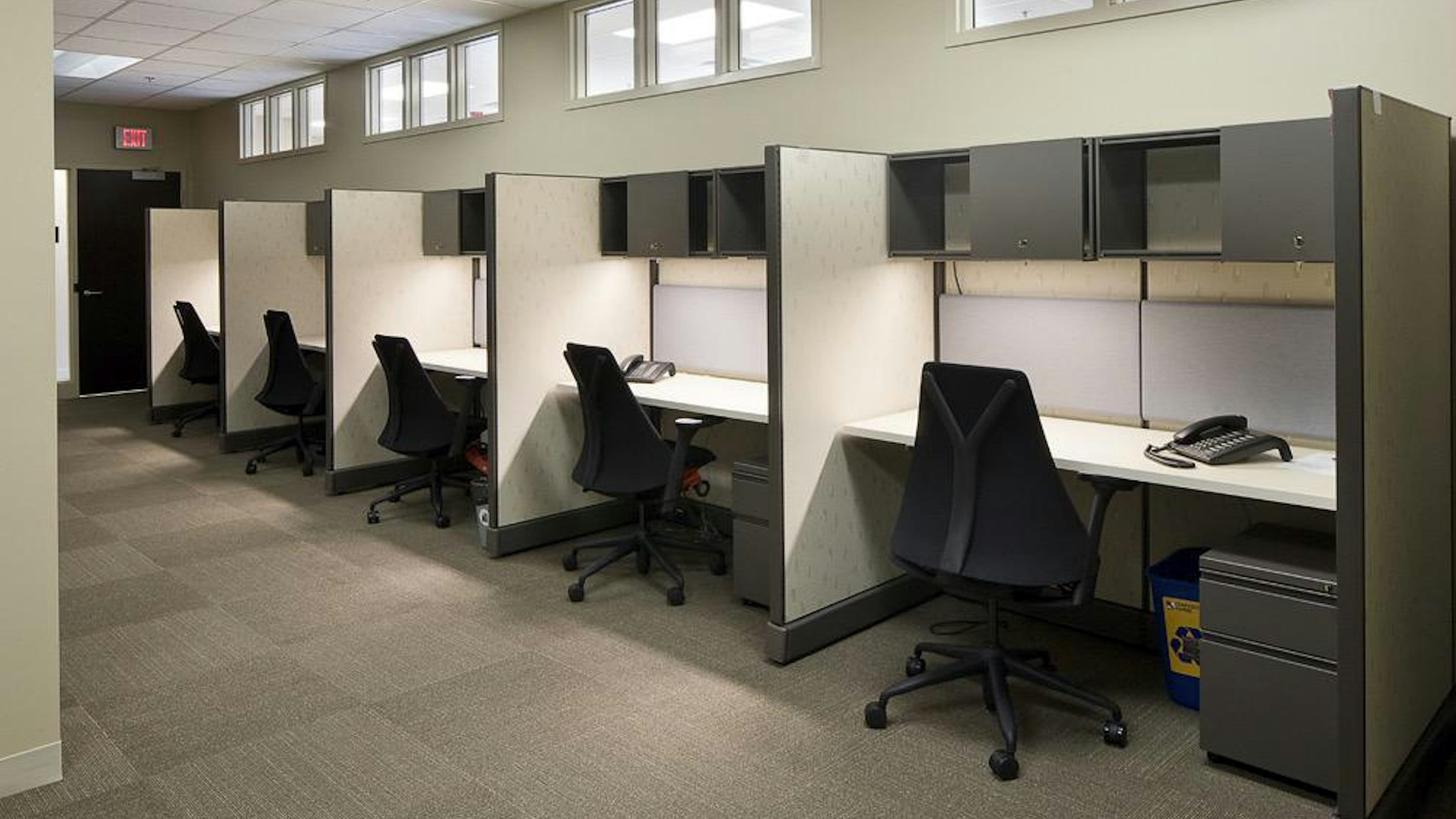
The Ramsey County 402 University Facility is different from any other facility in the nation and collocates three distinct services—detox, mental health crisis center, and commitment courts—providing a substantial opportunity for service integration for the county. While servicing some of the same clientele with variable base issues, these unique departments still needed clear separation to produce an appropriate environment for each of their operations. No existing facility was found anywhere in the nation that housed these three distinct functions under the same roof.
For this facility to reach the people it seeks to help during crises, the East Metro Crisis Center needed to overcome the stigma associated with detox and commitment courts. After navigating vastly divergent needs and arriving at a consensus, the stakeholders envisioned a design that was not only inviting, service-oriented, and reflective of its mission but also accommodated the separate departments. The design ensures that the mental health clinic is spatially distinguishable from its counterparts. The commitment courts have a respectful and secure environment, and the detox center is a safe space for the chemically dependent.
Benefiting from the collaborative environment during the design, representatives of the three distinct functions realized that they serve many of the same clientele at different times. Through core planning group meetings during the design process with Wold, all three entities came to a consensus on how each distinct entity could co-exist in the same facility and laid the groundwork for ongoing collaborations during service delivery. Although a single client may not be receiving services from all three functions simultaneously, seeing how their services fit into the greater needs of clients’ mental and chemical health results in better outcomes for clients.